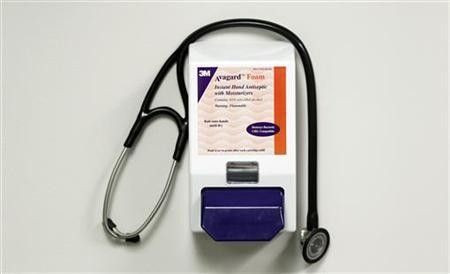COBRA's Federal Subsidy Ends Sept. 1, Unemployed May Be At Risk

A federal survey showed that nearly three-quarters of jobless Americans say they can't afford needed health care or prescription drugs, as the Consolidated Omnibus Budget Reconciliation Act of 1985, which provides medical coverage for the unemployed, is set to expire on Sept. 1.
About half of jobless Americans also say they're struggling with medical bills, according to the survey released Wednesday.
COBRA, a well-known acronym for the program, allows laid-off workers to continue to receive medical coverage under their former employer's health insurance as long as they pay for it themselves.
The 2010 Commonwealth Fund Biennial Health Insurance Survey found that 60 percent of working Americans rely on employer-based health insurance, so when 15 million working-age adults lost their jobs between 2008 and 2010, an estimated nine million also lost their health insurance.
Federal health officials said four million more Americans went without health insurance in 2010 compared to 2008.
Likewise, a Kaiser Family Foundation study found that those retaining health insurance through the program doubled after the subsidies became available, indicating that many Americans will likely be unable to afford coverage after the Sept. 1 deadline.
COBRA without the subsidy is pretty expensive, Antoinette Kraus, the project manager for the Pennsylvania Health Access Network, a coalition of 55 organizations that advocates for affordable quality healthcare, told the Philadelphia Inquirer.
There's a group of people that have fallen through the gaps as we wait for health-care reform, Kraus added.
The average monthly cost of maintaining COBRA coverage without the subsidy is about $1,137 for a family policy and $410 for an individual, according to calculations from The Kaiser Family Foundation.
But, in 2009, the federal government provided a subsidy for COBRA that reduced the cost of coverage for the unemployed by 65 percent.
Roughly 9.1 percent of Americans are unemployed, according to the most recent statistics from the Bureau of Labor Statistics.
It's clear from this report that losing a job and health insurance simultaneously is a serious threat to a family's health and financial stability, Commonwealth Fund President Karen Davis said in a statement.
In November, the Centers for Disease Control and Prevention reported that nearly 59 million Americans went without health insurance coverage for at least part of 2010.
In 2014, Medicaid will be expanded to cover single adults earning up to $14,484 a year and families of four making up to $29,726 a year, according to federal health officials.
© Copyright IBTimes 2025. All rights reserved.





















